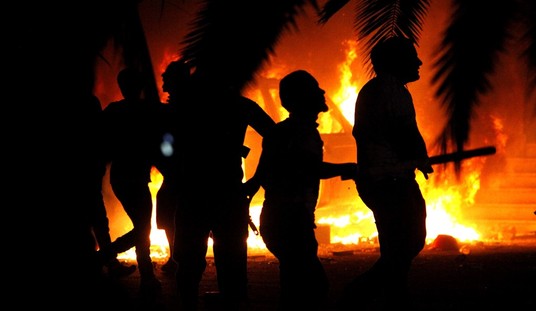Some of the very same financial institutions that participated in the housing market crash of 2008 (when credit default swaps were the rage), are now directly making billions in profit an the backs of the American public. Even though there is no real shortage of world reserves, unregulated speculators, (and major financial institutions), are cashing in with the shear volume of participation. To make matters even worse, lobbyist for these banks and profiteers are providing “equitable” campaign contributions to your United States Representatives to look the other way. Outrageous accusations you say? Perhaps, but Charles Wallace at Daily Finance introduces a thirty year oil market speculator who makes a strong case:
“Have you ever wondered why when you go to the gas station to fill up the family car, the price of gas at the pump has just jumped 25 cents a gallon over the past three days?
Perhaps you thought the oil companies were just being greedy. Or you believed the nightly news pundit who said that gas prices went up because the crisis in Libya was affecting supplies of oil. One professional oil trader says that you’d be wrong on both counts.
Dan Dicker, who has spent nearly three decades in the oil market, has a profoundly disturbing explanation of why the price of oil, and the gasoline that comes from the crude product, has risen so dramatically in recent months. It turns out, Dicker says, that the price has nothing to do with supply and demand for oil. It’s the financial market for oil, filled with both professional speculators and amateur investors betting on poorly understood oil exchange-traded funds, who have ratcheted up the price of gas to such sky high levels.
“There is no supply issue going on here – what you have is the perception of the possibility of a supply issue,” Dicker says. “A whole bunch of people are pouring money into an oil market trying to take advantage of what they perceive to be a real risk in supply. It’s a marketplace that I argue should not be allowed to be wagered on like a stock or bond.”
But turmoil in the Middle East is hardly effecting supply. Only the speculation that it might effect supply is this imaginary 800 pound gorilla in the room:
“Dicker notes that Libya produces only 1.3 million barrels of oil a day, just a tiny fraction of the world oil market. Even if Libyan crude were lost to the world market in the current turmoil, and there is no sign that it is, Saudi Arabia has 5 million barrels a day to use in case of an emergency.”
For the record, Wallace’s story is mostly based on Daniel Dicker’s book Oil’s Endless Bid: Taming The Price of Oil To Secure Our Economy. Sources I’ve found also show Dicker as a Senior Contributor to The Street (a financial online site), which supplies some of his bio here. Dicker insist that if regulations were imposed on only the oil commodity market, the price of a barrel could fall by 50% overnight. Dicker makes the case for stronger regulation based in part by the influx of traders entering the market, and facilitated by the introduction of a new high speed computer system that has compounded the problem:
“The move was made easier by the arrival in 2006 of electronic trading of oil futures. The formerly cumbersome process of trading oil with a floor trader at the New York Mercantile Exchange was suddenly replaced by a streamlined process requiring only a few keystrokes on Chicago Mercantile Exchange’s Globex computer platform.
From a few thousand trades an hour at the old NYMEX, traders now process millions of trades an hour by computer. Dicker estimates the financial market for oil is 15 times greater than the amount of actual oil being traded, with 75 types of futures being sold on exchanges. That doesn’t even include all the private, over the counter transactions that take place.
“The amount of money pouring into hard assets, particularly oil, is outsized because it’s new and fresh, so you get these outsized moves from $68 a barrel in the summer of 2010 to $100 now,” Dicker says.”
But none of these factors can be realized without money getting invested—and tons of it.
“Why does all this trading drive up the price, when buyers and sellers should theoretically cancel each other out? Dicker says that is primarily because almost all oil investments being sold by the big investment banks are long trades – bets that the price will go up. While it’s also possible to short oil ETFs, no one does. So that’s heads ever skyward.
Among the biggest winners of the new oil markets are investment banks like Goldman Sachs (GS) and Morgan Stanley (MS), which create new products for clients and then use that information to trade on the products. In 2004 and 2005, Goldman Sachs made $1.5 billion a year trading oil, Dicker says. In the first half of 2009 alone, the firm made $3.4 billion oil trading profits. Firms like Goldman are not taking bets that oil will move lower or higher. Trading simply means naming a spread of buy and sell prices from which they can eke out tiny but regular profits, a business without risk.”
Which brings us to those dreaded lobbyist. In this case, the lobbyist are paid to convince your legislators to ignore any thought of regulating the oil markets based on actual supply and demand policies. And we all know lobbyist rarely convince legislators without greasing some one’s pocket.
“So if gas prices would come down sharply with minimal regulation, why doesn’t the government step in and impose limitations as it has done recently for other derivatives, forcing most firms to conduct their trading on exchanges? Dicker believes it is largely because large financial firms with a direct interest in oil trading have made so much money with oil that they can afford to lobby Congress to block any significant reforms.”
The Drudge Report cites a CNBC report that gas prices are rising because the dollar is still plummeting (thanks to the Fed printing dollars like there’s no tomorrow), which certainly lends a credible argument for what’s driving the price of fuel. And one financial strategist presents “the perfect storm” that could drive gas prices through the roof this summer:
“All we have to have is a couple badly placed hurricanes which could constrain some of the refinery output capacity in some key locations,” says Richard Hastings, strategist at Global Hunter Securities in Charlotte, N.C. “If you get weakness in the dollar concurrent with the strong driving season concurrent with the impact of one or two hurricanes in the wrong place, prices could go up in a quasi-exponential manner.” Hastings sees gasoline having “no problem” getting to $6.50 a gallon over the summer after increased demand and storm disruptions come into play.
Talk about classic speculation. Funny how Mr. Hastings’ “strategy” is devoid of the idea that our government might do something right for a change by returning market principals based on real supply and demand. I expect some major “finger-pointing” from our legislators as the price of fuel rips the guts out of consumer confidence along with draining our pocketbooks. And Dicker doesn’t think Congress will act responsibly as long as the money flows their way.
At this posting, I tend to agree with Dicker.
This post was promoted from GreenRoom to HotAir.com.
To see the comments on the original post, look here.








Join the conversation as a VIP Member